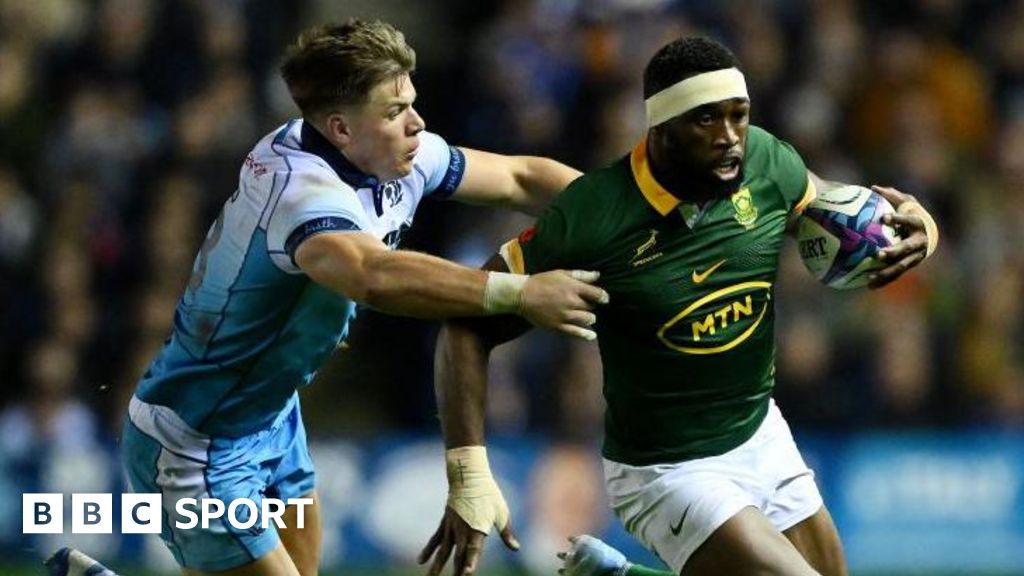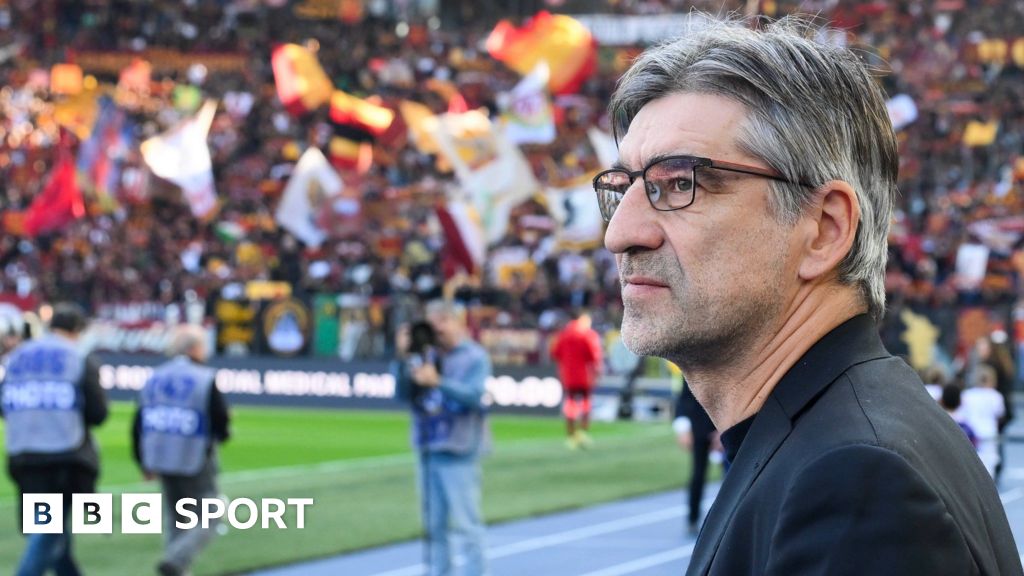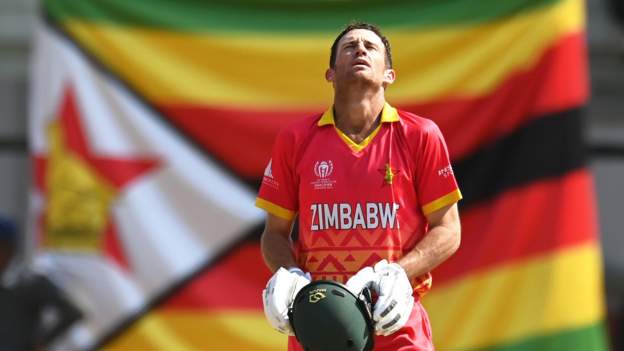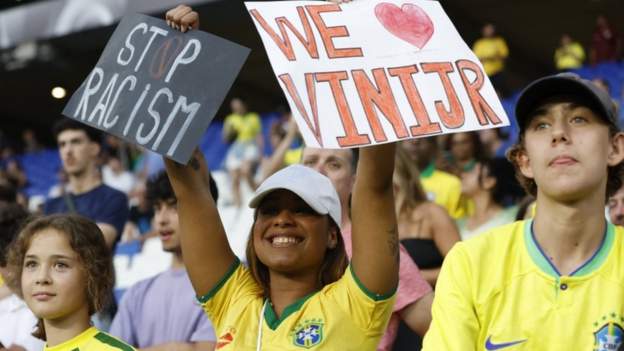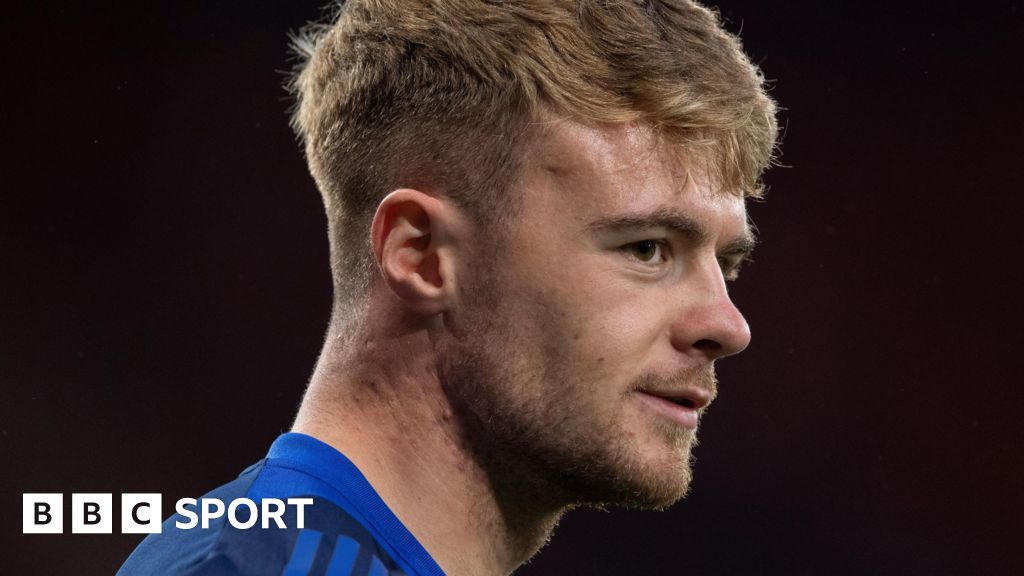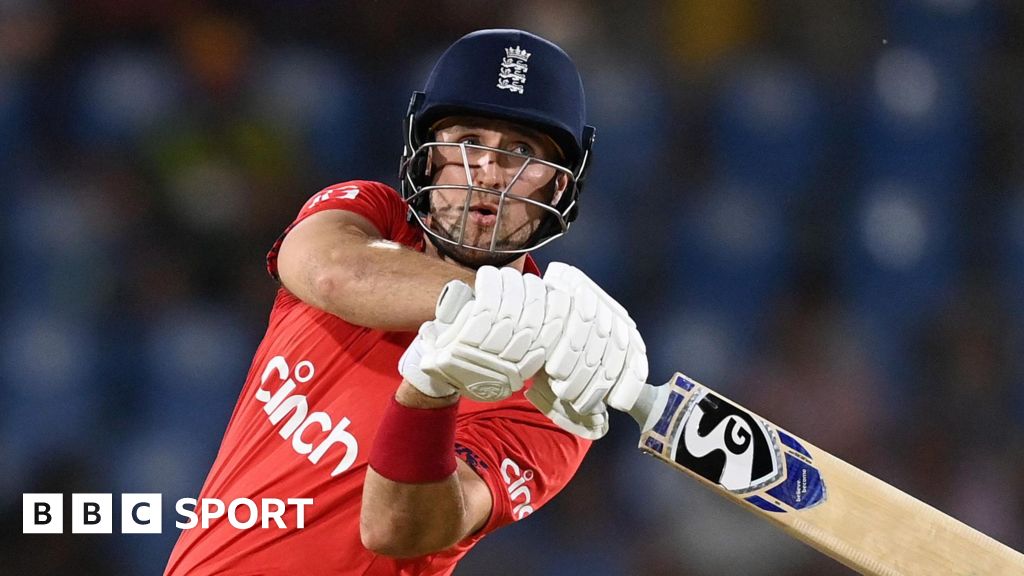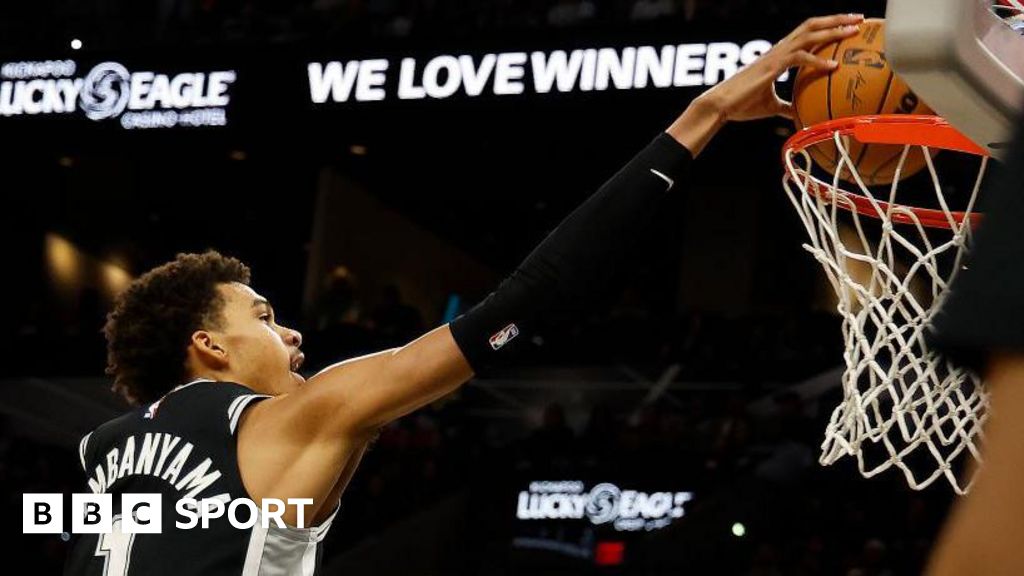Sean Williams thought cricket in Zimbabwe was “dying” during a “dark period” for his country.
But the 37-year-old now believes the sport’s revival on and off the field can be a “glimmer of light” for the nation.
In the recent Qualifier event hosted in Zimbabwe, Williams was his country’s leading run scorer as they narrowly missed out on a place at this year’s one-day international (ODI) World Cup – meaning the Chevrons will be absent from a second successive tournament.
Although Sri Lanka and the Netherlands were the teams who booked their places at the showpiece in India that begins in October, head coach Dave Houghton insisted fans in Zimbabwe had found something to “truly love” following a series of battling performances from his side.
Cricket ‘was dying – if not dead’
Williams made his ODI debut as an 18-year-old in 2005, not long after the black armband protests by Andy Flower and Henry Olonga at the 2003 World Cup, a tournament co-hosted by three African nations: Zimbabwe, South Africa and Kenya.
According to Olonga, Zimbabwe’s first black Test cricketer, the high-profile show of dissent against then-president Robert Mugabe was to mourn “the death of democracy”. As a result of the protest, he was forced to flee the country and never played for Zimbabwe again.
Despite making his senior debut two years later, the reverberations of what happened in 2003 initially also led Williams to call time on his international career at an early stage.
“Not only had a lot of players left, but a lot of coaches,” the all-rounder tells BBC Sport Africa.
“The quality of the coaches deteriorated instantly. They were, with respect to them, only club players who had done their coaching certificates.
“It’s very difficult [when] you’ve been playing international cricket and you had those guys that don’t actually have that experience on the field trying to coach you.
“I got to a point where I looked around and thought, ‘this is not going to work’.”
Williams was also concerned about matters off the pitch.
“Certain people came into power and a lot changed,” he says. “There were more office members employed than players. It was a nightmare.
“People knew how much money [national governing body] Zimbabwe Cricket was getting paid but nothing was happening. It looked like it was dying at that time – if not dead.”
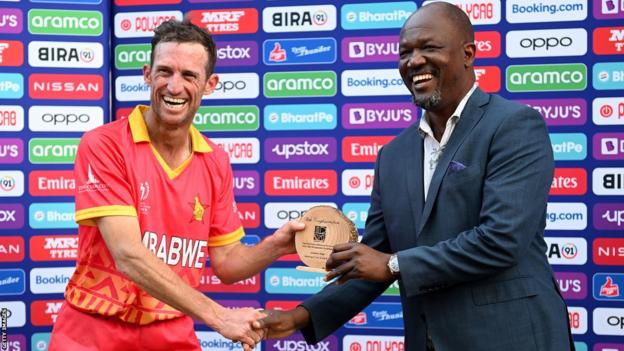
Williams says a lack of adequate support eventually led him and several other key players to quit.
“We were doing very well individually,” he says, “there were four or five guys scoring all the runs.
“We had a lot of weight to carry and we had pay disputes as well. For me, that looked like the end of Zimbabwe cricket.
“It’s not easy when you get treated like that in a professional environment and you’re sacrificing things to be away from home,away from family and not being reimbursed.”
A ‘dark period’
Having struggled with his game from 2008 onwards, Williams eventually returned to cricket in Zimbabwe after what he describes as a two-year “dark period” when his career paused entirely.
“I walked away for about two years and didn’t play around 2011 and 2012,” he explains.
“I’d go out and mess around and get dropped. I’d give an excuse not to be at training.
“I wasn’t used to being as professional.”
At the time of Williams’ return, English coach Alan Butcher, father of former England player Mark Butcher, was in charge of the Zimbabwe national team, which had returned from a six-year Test exile in 2011.
“I really rated Alan Butcher as a coach but I struggled a bit,” Williams says. “I wasn’t sure.”
Butcher handed Williams his Test debut in 2013, but the man he really credits with his international comeback is Houghton.
Currently in his second spell as Zimbabwe head coach, at the time the 66-year-old was director of national coaching.
“What actually kept me in the game was Dave Houghton,” Williams confides.
“He coached me at under-16s, then again for [Matabeleland] Tuskers over the years and he kept coming back in between.”
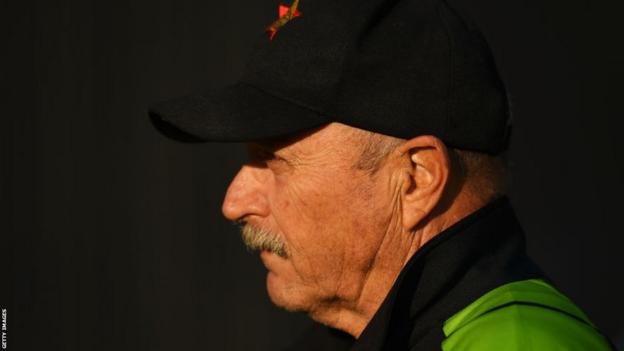
Having played Test and ODI cricket for Zimbabwe for 14 years between 1983 and 1997, Williams says Houghton is respected by the players not just for his coaching ability – and he hopes to copy his mentor’s longevity.
“Having him here again now is just phenomenal. A core group of guys seem to have stuck together through this and a few of them are still here today.
“I’m hoping the senior pro group can continue doing a little bit more for the youngsters before we retire.”
A ‘glimmer of light’
With Houghton back as head coach and a newmanagement structure in place, Williams is optimistic about the future of cricket in Zimbabwe – and for the country as a whole.
“A lot of stuff has changed. [Zimbabwe Cricket] are treating the guys a lot better.
“A lot is changing outside of the cricket as well, which is good.”
In an 18-year international career, Williams has now racked up 14 Test caps, 68 Twenty20 appearances and an impressive 156 ODIs.
At the 2015 World Cup in Australia and New Zealand, he played all six games as Zimbabwe mustered just a single victory against the United Arab Emirates.
This year’s tournament in India was not to be, but the veteran, who will be 41 by the time Zimbabwe, South Africa and Namibia share hosting duties in 2027, is not ruling out one final shot at glory on home soil.
“Imagine all the stadiums around Zimbabwe filled up. It’s going to be stunning,” he says.
“Now you’re bringing in not only locals but international [fans] as well. It can only benefit the country at large, not just the cricket.
“That glimmer of light is truly a sign of what could lie ahead – it could potentially be massive.
“Maybe there’s a fairytale ending.”








